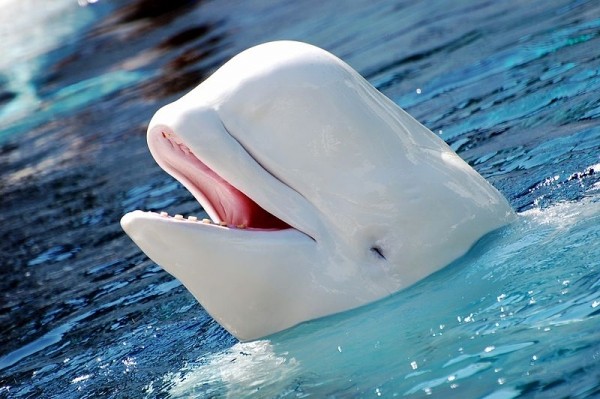
A cat parasite Toxoplasma gondii, that can cause human blindness and harm developing fetuses has been found in western Arctic Belgua whales.
The discovery by scientist from University of British Columbia, hascreated health advisories to Inuit people who consume whale meat.
"Ice is a significant ecological barrier and it influences the way in which pathogens can be transmitted in nature and your risk of exposure," said molecular parasitologist Michael Grigg.
"What we're finding with the changes ongoing in the Arctic is that we're getting new pathogens emerging to cause diseases in the region that haven't been there before," BBC News quoted him as saying.
Toxoplasma gondii, is a parasitic protozoan commonly found in catsand can infect almost all warm blooded animals. It is present at lower latitudes and many humans carry it with no symptoms of illness. However, it can be dangerous during pregnancy and individuals with low immunity.
Questions arise as to how the parasite got into the whales. Experts suspect that cats brought to the Arctic as pets may have carried the pathogen.
"The transmissible stage of this parasite is an egg-like structure. The only way to deactivate it is to boil it or freeze it, so the longer you have temperatures above zero degrees Celsius, the more risk you have in being exposed to this infectious stage of the parasite. And with climate change, you are increasing your risk," said Dr Grigg.
Earlier, in 2012, Dr Grigg and his team indentified a new strain of a parasite, Sarcocystis, which killed over 400 grey seals inhabitant in North Atlantic. The parasite was previously been prevalent only in the Artic.
Scientists explain that this might be due to the warming conditions that is allowing sea mammals from southern sea to mix with the northern population resulting into exposure to such pathogens.
"They're the top predators and so they rely on the ecosystem in which they live; they have a top-down view. They reflect the changes that are occurring below them. They may not be able to tell you every linkage, but if a sea mammal stops eating one thing and starts eating another, that tells me there has been a big shift," Dr Sue Moore, an oceanographer at the National Oceanic and Atmospheric Administration told BBC News.

















